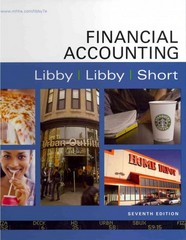Question
Meet the Father of Zero-Based Budgeting Pete Pyhrr's strategy reached the White House in 1970s, then almost disappeared; nowHeinz, Kraft are adopting it. 3G's embrace
Meet the Father of Zero-Based Budgeting
"Pete Pyhrr's strategy reached the White House in 1970s, then almost disappeared; nowHeinz, Kraft are adopting it.
3G's embrace of the systema centerpiece of the firm's strategy to reshape theU.S. food industry through deals like this week's proposed $49 billion takeover ofKraft Foods Group Inc.has thrust Mr. Pyhrr's method into the spotlight after years in which it struggled to gain traction among Fortune 500 firms."I think it's great in my old age to say something that was a major part of my lifemany, many years ago is being adoptedhopefully successfully," the 73-year-oldTexan said in an interview on Thursday, his first in many years.Zero-based budgeting is a "tremendous" tool, Mr. Pyhrr said, "especially in times of economic problems, when you need to make reductions, or when you have significant and rapid technological change." But he doesn't know how widely it is used. "Most companies don't talk about what kind of budget process they have," he said.3G and companies it controls, including Burger King parent Restaurant BrandsInternational Inc. and H.J. Heinz Co.which it plans to merge with Krafthave used the technique to slash costs in everything from jobs to corporate jets and the use of color photocopies. Some such cuts seem obvious, Mr. Pyhrr said, but the tool goes deeper than that, he said. On corporate travel, "it's really saying:Why are we going to all these places and how many of us are going?"In zero-based budgeting, managers plan each year's budget as if starting their department from scratcha contrast with the prevailing method of adjusting the previous year's spending. The system calls for managers to break programs or activities into individual "decision packages," including all associated costs, to help identify how funds are used. The technique forces them to justify the costs and evaluate benefits every 12 months, and to scrutinize whether dollars should be shifted from less-profitable to more-profitable projects.It is unclear if anyone used a similar technique before him, but Mr. Pyhrr is widely credited with pioneering it in the corporate world. He developed the concept in the research department at Texas Instruments, using it to help prioritize which of scores of projects should be pursued and how much capital they should get each year. "We funded a lot of new technology projects, and we did it by taking the money from existing operations" that were targeted for cost cuts, he recalled.In the People magazine interview in 1977, Mr. Pyhrr said, "We discovered to our horror that many programs [at Texas Instruments] were not analyzed every.
year, and that many were just funded as a matter of coursewithout a conscious decision being made by anybody."Mr. Pyhrr has run his own companies since the mid-1970s. Today he is president and owner of Magnetic Ticket & Label Corp., a 250-employee Dallas company that manufactures printed airline tickets, airline bag tags and other products.The firm isn't big enough to require a formal zero-based budgeting process, he said, though it constantly tinkers with reallocating spending to more profitable areas, a broad concept consistent with the spending tool's aims.Mr. Pyhrr developed zero-based budgeting when he was a controller at TexasInstruments between 1969 and 1971. He said he sent an article about the technique to Harvard Business Review, and was surprised when they ran itand even more surprised when he got a call from a staffer for Jimmy Carter, thenDemocratic governor of Georgia.The future president hired him to help control the state's costs. Mr. Pyhrr said he had some success scrutinizing prison systems, universities and hospitals, but encountered resistance among state officials and sees the effort as a mixed bag."It worked pretty well in agencies that wanted it to work, but it was not done the way I would have done it as a taxpayer," Mr. Pyhrr said.Mr. Pyhrr went on to write "Zero-Base Budgeting: A Practical Management Tool for Evaluating Expenses." Mr. Carter, who campaigned on the idea in 1976, ordered the technique implemented in 1977 for executive branch departments.With Mr. Carter in the White House, the "book sold a lot of copies" and Mr. Pyhrr thought he might be able to retire on the proceeds. But sales cooled and theWhite House dropped its use under President Ronald Reagan. He estimates he has earned "maybe half a million" dollars from the book over the years.A Republican, Mr. Pyhrr said one of his wishes is that more government entities'It worked pretty well in agencies that wanted it to work, but it was not done the way I would have done it as a taxpayer'Peter Pyhrr.
QUESTIONS: 1. What is zero-based budgeting? 2. Why do you think implementing zero-based budgeting results in firms slashing costs? 3. Why do you think zero-based budgeting is not the norm instead of the exception? 4. What are the potential downsides of zero-based budgeting?
Step by Step Solution
There are 3 Steps involved in it
Step: 1

Get Instant Access to Expert-Tailored Solutions
See step-by-step solutions with expert insights and AI powered tools for academic success
Step: 2

Step: 3

Ace Your Homework with AI
Get the answers you need in no time with our AI-driven, step-by-step assistance
Get Started


